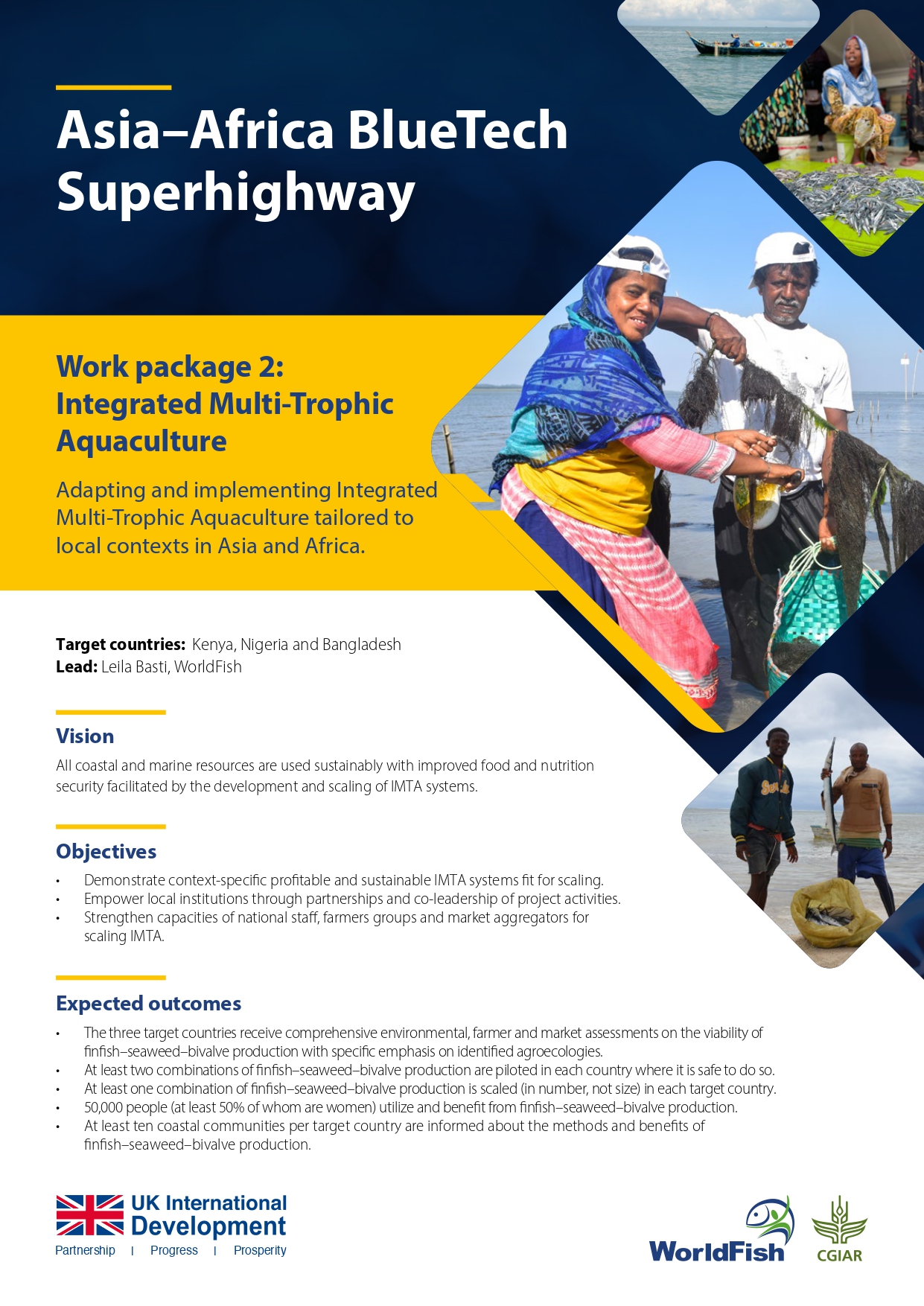Adapting and implementing Integrated Multi-Trophic Aquaculture tailored to local contexts in Asia and Africa

Vision
All coastal and marine resources are used sustainably with improved food and nutrition security facilitated by the development and scaling of IMTA systems.
Objectives
- Demonstrate context-specific profitable and sustainable IMTA systems fit for scaling.
- Empower local institutions through partnerships and co-leadership of project activities.
- Strengthen capacities of national staff, farmers groups and market aggregators for scaling IMTA.
Strategy
To support the implementation of IMTA systems, the area of work will conduct a comprehensive situation analysis, examining technical, environmental, climate, social, economic, institutional and market factors. Additionally, the project will validate context-specific business models for the sustainable production of aquatic foods through IMTA. Finally, it will disseminate innovations in IMTA within and beyond the target countries through communications and demonstrations to encourage greater adoption.
Partnerships
The success of this area of work relies on collaborations with local and international partners who play a crucial role in supporting IMTA system development and scaling.
- Kenya Marine and Fisheries Research Institute
- Lagos State University
- Fisheries and Marine Resource Technology Discipline, Khulna University
- Bangladesh Fisheries Research Institute
- Chattogram Veterinary and Animal Sciences University
- Department of Fisheries
July 2023–June 2030
Phase 1: 2023-2027
Target Countries:
Kenya
Nigeria
Bangladesh
Lead: Esther Magondu
Phase 2: 2027-2030
